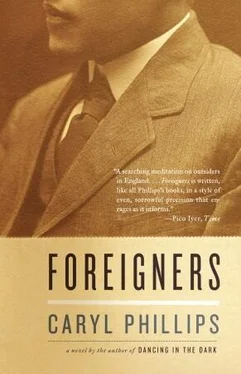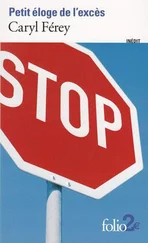Soon after their arrival, Turpin made it clear to George Middleton that he was not altogether keen on the theatrical tour, but he could not argue with a weekly income in excess of £1,000 for barely breaking sweat. The main staple of the 'performances' were exhibition bouts with either his brother Dick or Jackie, and perhaps a little work on the punchbag and a display of his prowess on the speedball. In each city an appeal was made to promising fighters to come out and spar a few rounds with the champion, but after a near-tragedy in Birmingham few took Turpin up on his offer. During the second performance on a midweek night at the Birmingham Hippodrome, a local lad went two rounds with Turpin, but on leaving the ring he suddenly collapsed. In the end the young man recovered, but members of the public were now very cautious about risking their health against Randolph Turpin. Moving from town to town, doing little more than shadow-boxing alongside singing and dancing acts, clowns, and even pet acts, the novelty of this way of making money soon wore off. Luckily, by the time December rolled around the tour was over, for most of the theatres needed their stages for pantomime season, and Turpin was once again free to turn his mind to the more pressing business of his boxing career. In June 1952, having decided to temporarily step up a division, Turpin won the British and Empire light-heavyweight title, stopping a gallant Don Cockell in the eleventh round despite the fact that his opponent outweighed him by 12 lb. However, by this stage, it was becoming evident to those close to Turpin that the fighter was experiencing serious difficulties managing his finances.
Although Turpin had recently made plenty of money by appearing on stage, in addition to the large sums that he was earning from boxing, the fighter was spending his income at a reckless rate. After the Robinson defeat in New York, Turpin had informed a surprised George Middleton that in future he wished to take total responsibility for his own financial affairs. Up until this stage in Turpin's professional life as a fighter, George Middleton had countersigned all of Turpin's cheques and made sure that the boxer's accounts were kept in order. When Turpin informed him of his intentions, Middleton was alarmed, but he knew that he was dealing with a grown man and the last thing that he wanted to be accused of was being overly interfering or, even worse, stealing from his fighter. George Middleton knew that he had done his best to instil in his charge the idea that a boxing career is relatively short, and that it can all be over with just one punch, therefore Turpin should be prudent with his money. And Turpin had listened, but Middleton was unconvinced that his words had done little more than pass in through one ear and out through the other. George Middleton agreed to Turpin's demands, but he once again suggested to Turpin that he save his money in the bank, or invest it properly, but he chose to say nothing further and simply made the arrangements for his fighter to take charge of his own financial affairs.
After the Robinson rematch Turpin suddenly realised that he was a rich man. Unfortunately, with his new-found wealth came friends and hangers-on who fed Turpin's ego and whom he, in turn, was able to help out by allowing them to share in his fortune. If a virtual stranger needed a car, or a 'loan' to escape from pressing debt, or money to buy a pub or a business, Turpin was able to put his hand in his pocket and oblige. His own family were given houses and cars, and he bought himself a pair of pet monkeys and a big house in Warwick. If he felt like a break in the south of France or Spain, he would take family and friends, paying for their flights and accommodation, and picking up the bill for everything. His sister Joan, who was a frequent recipient of his generosity, often warned her younger brother to be less extravagant and to remember that it was his money and not anybody else's. However, casually tossing handfuls of banknotes into the air, 'Licker' would remind her that yes, he knew that it was his cash, which was why he would do with it exactly what he pleased.
Turpin did make one investment with his money, but it was hardly one which made George Middleton feel any sense of comfort. In the autumn of 1952, Turpin went into partnership with Leslie Salts, and the two men paid £7,500 each and together purchased a nine-bedroom hotel set on fifteen acres of land situated on a windswept, and somewhat isolated, headland just outside of the town of Llandudno in North Wales. Originally constructed as the Telegraph Inn, from where messages were relayed to Holyhead and Liverpool announcing the impending arrival of ships, it had later been rebuilt as the Summit Hotel and had served as the bar for those who used the Great Orme Golf Club. The golf course had closed in 1939 and become a sheep farm, while the hotel had been allowed to languish and fall into disrepair. The two men had the idea of transforming the hotel, which during the war had been requisitioned by the RAF and utilised as a temporary radar station, into an international sporting centre and tourist attraction and cashing in on the seaside trade. Neither man could have been thinking too clearly, for not only was there little in the way of public transport to the venue, known locally as the Great Orme complex, there was just one, woefully inadequate, telephone line. The view from the summit was undoubtedly panoramic, and the steep slopes flowed down from the hotel on all sides like an attractive green cape. But, in truth, the place offered the visitor little more than a laborious climb on foot, or an ascent in a lumbering tram, to the view. The hotel still sprouted a dense forest of aerials and antennas from its signalling days, and the building appeared to be permanently in transition. Visitors quickly surveyed the rolling hills, wide open sea, and the sumptuous scenery, before realising that it was time to return to Llandudno and, of course, the only way to leave the Great Orme was to descend on foot or by the same inelegant tram. George Middleton had little faith in Turpin's investment, and he had, by this time, conducted a private investigation into Leslie Salts and his business practices, and uncovered a whole series of wrongdoings. Once again he had made clear his reservations to Turpin, but Turpin's mind was made up.
The Great Orme complex opened on Easter Monday 1953 in a blaze of publicity, with telegrams of good luck and congratulations from British sporting heroes such as Dennis Compton and the boxer Freddie Mills; even Sugar Ray Robinson sent a telegram to his old adversary. Turpin's sister Joan and her bricklayer husband, John Beston, were put in charge of the complex, but they had no experience of running such an enterprise and the place was soon leaking money. The situation was not helped by Turpin's habit of turning up with friends from London or the Midlands and insisting that nobody should pay any bills. The Welsh boxing champion Jimmy Wilde, who between 1916 and 1923 held the world flyweight title, and who was popularly known as 'the ghost with a hammer in his hand', opened Randy's Bar at the centre. However, despite Turpin announcing that he would be spending a good deal of his time at the centre training for his next fight, in the hope that the fee-paying British public might therefore be persuaded to put their hands into their pockets and pay to see him going through his paces, money continued to flow out of, as opposed to into, the venture. An advertisement for the Great Orme Holiday Centre in a 1953 programme for one of Turpin's fights suggests the scale of Salts' and Turpin's ambition. 'Visit Randy's Bar. Fully Licensed. The most unusual bar in Britain! Snack bar, Music, Sports, Exhibitions, Miniature Railway, Little Theatre. See the British Crown Jewels in replica.' The bottom of the advertisement proudly reads 'Owned by Leslie T. Salts and Randolph Turpin (the famous boxer)', and just in case one is still unsure, there are two large headshots of both men smiling intently. However, Turpin was soon asking George Middleton for a loan, and then he turned to Jack Solomons, and although both men were alarmed by Turpin's spending they agreed to help him out knowing full well that there was little point in talking further to the boxer about his cavalier attitude to money.
Читать дальше











![Unknown - [Carly Phillips] The Bachelor (The Chandler Brothe(Bookos.org) (1)](/books/174132/unknown-carly-phillips-the-bachelor-the-chandle-thumb.webp)
